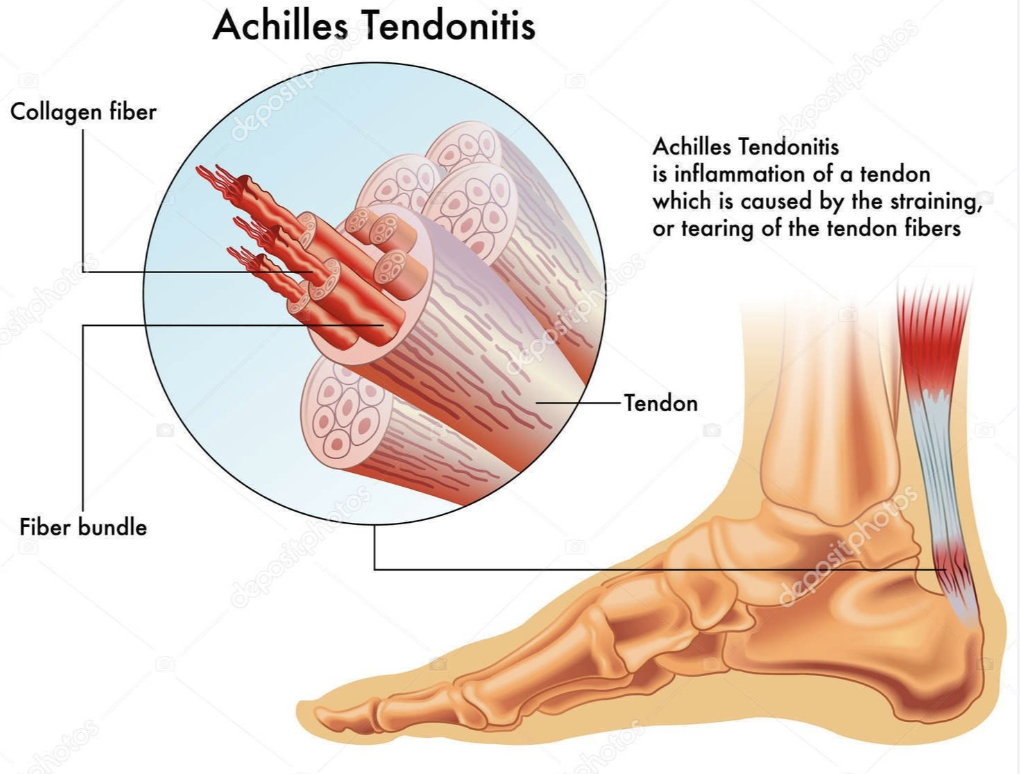Understanding the Science Behind Eccentric Exercises, Load Management, and Aging Effects
Introduction:
Welcome back to Week 2 of our Achilles Resilience journey. In Week 1, we delved into the anatomy of the Achilles tendon and learned to differentiate discomfort from injury signals. Now, in Week 2, we’ll explore the critical aspects of strengthening and flexibility, uncovering the science behind eccentric exercises, the importance of load management, metabolic changes in tendons, and how the Achilles evolves with age.

Eccentric Exercises: The Achilles’ Best Friend:
Eccentric exercises are at the heart of Achilles tendon rehabilitation. These exercises focus on the lengthening phase of muscle contraction, specifically the Achilles tendon. The science behind their effectiveness lies in their ability to stimulate tendon adaptation. Eccentric loading helps realign collagen fibers within the tendon, making it more resilient to future stresses.
Research supports the significance of eccentric exercises. A study published in the “Journal of Science and Medicine in Sport” found that eccentric exercises significantly reduced pain and improved function in patients with Achilles tendinopathy. So, if you’re on the path to Achilles resilience, make eccentric exercises a staple in your routine.
Load Management: Finding the Sweet Spot:
Load management is a delicate balance. It involves providing enough tensile load to stimulate tendon adaptation while avoiding overloading that could lead to injury. The Achilles tendon is a marvel of nature, capable of withstanding enormous forces. However, it’s crucial to gradually increase the load, allowing the tendon to adapt and strengthen without pushing it too far.
A 2018 review in the “British Journal of Sports Medicine” emphasizes the importance of load management in Achilles tendinopathy treatment. It suggests that gradual increases in load, as well as personalized exercise programs, are key to successful rehabilitation.

Metabolic Changes in Tendons: The Science Inside:
Ever wondered what happens metabolically when you put tensile load through a tendon? Tendons are dynamic structures, and this process is fascinating. When you apply load to a tendon, it stimulates the production of collagen, the primary building block of tendons. Collagen synthesis increases, making the tendon stronger and more resilient over time.
Additionally, load influences the release of various growth factors and cytokines that regulate the tendon’s response to stress. The intricate metabolic dance within the tendon is a testament to the body’s adaptive capabilities.

Aging and the Achilles: Understanding the Changes:
As we age, our Achilles tendons undergo changes. These changes are multifaceted and can impact tendon function. Research in the “Journal of Applied Physiology” suggests that aging can lead to a decrease in tendon stiffness, potentially making it more susceptible to injury.
However, don’t let this discourage you. Understanding these age-related changes empowers us to adapt our training and rehabilitation strategies. Tailoring exercise programs to accommodate the evolving needs of aging tendons is essential for maintaining Achilles resilience throughout life.
Week 2 of our Achilles Resilience journey has taken us deep into the science of tendon health. Eccentric exercises, load management, metabolic responses, and the effects of aging are all crucial elements in building Achilles resilience. It’s a journey that requires patience, knowledge, and dedication.
As we move forward, remember that scientific evidence supports these practices. Incorporate them into your training routine with confidence, and always consult with a healthcare professional or physiotherapist for personalized guidance. Building Achilles resilience is a journey worth taking, and with the right knowledge and practices, you’ll continue to run strong for years to come. Stay tuned for more insights on your path to Achilles health and well-being.
To attend the class sign up to the full subscription
Thanks for reading
James
